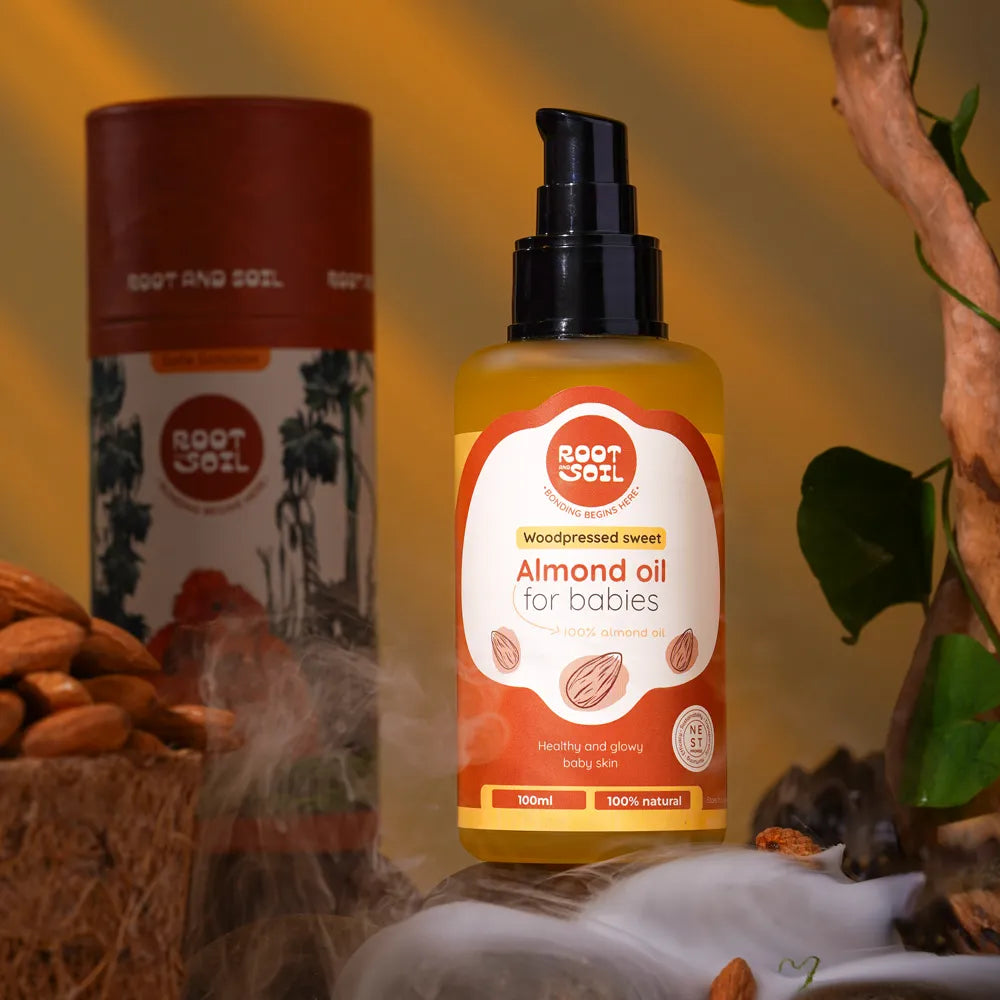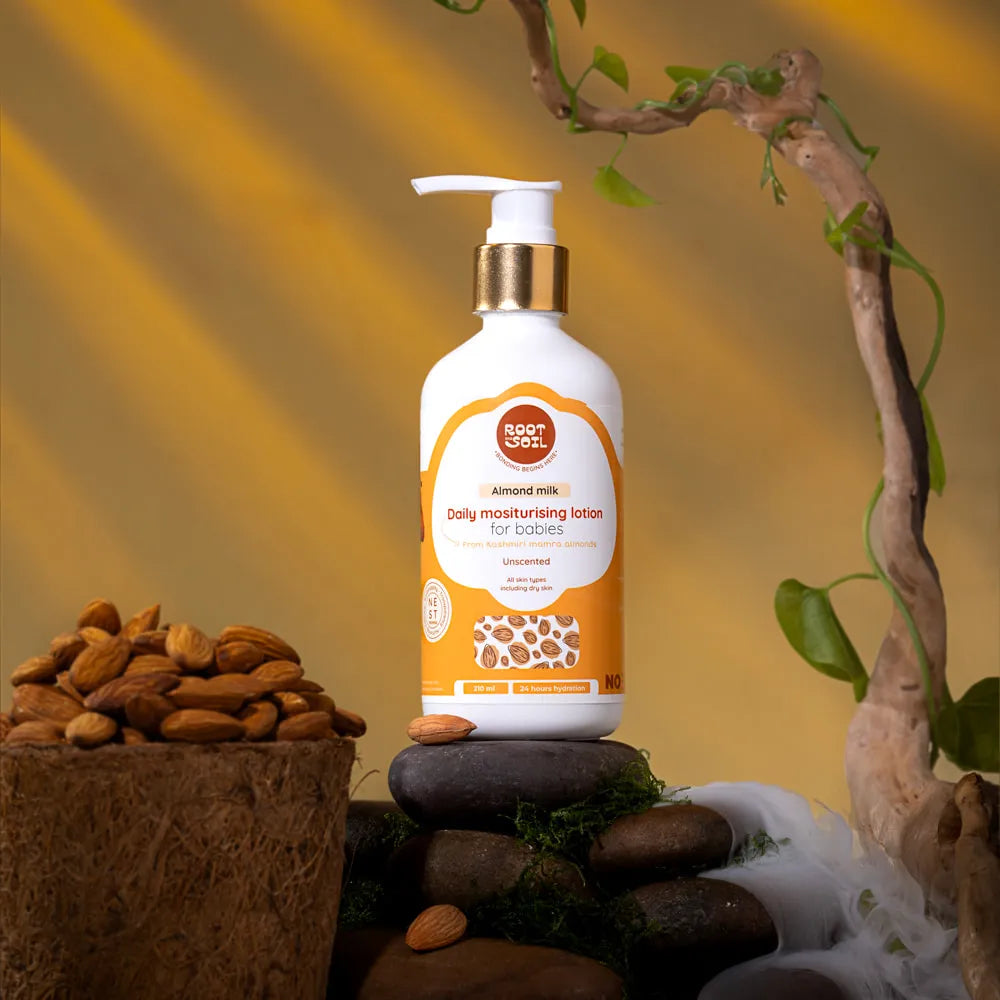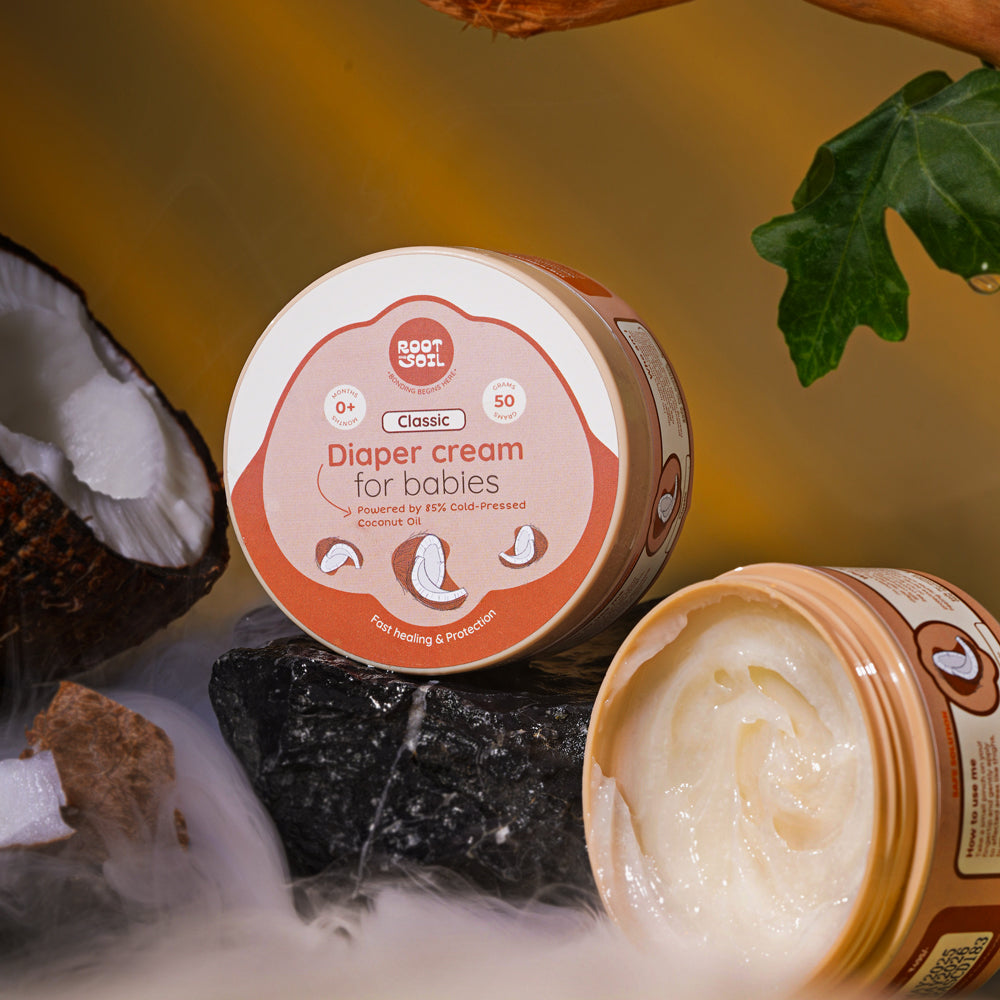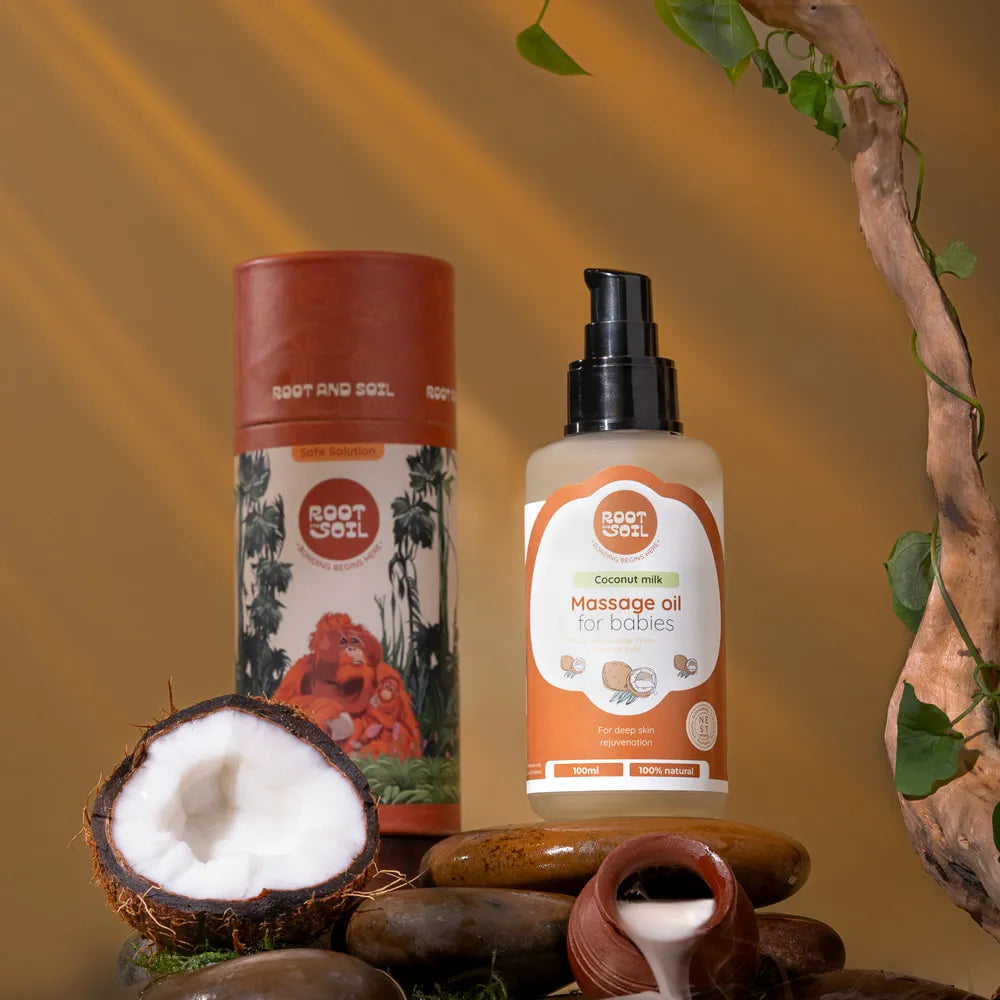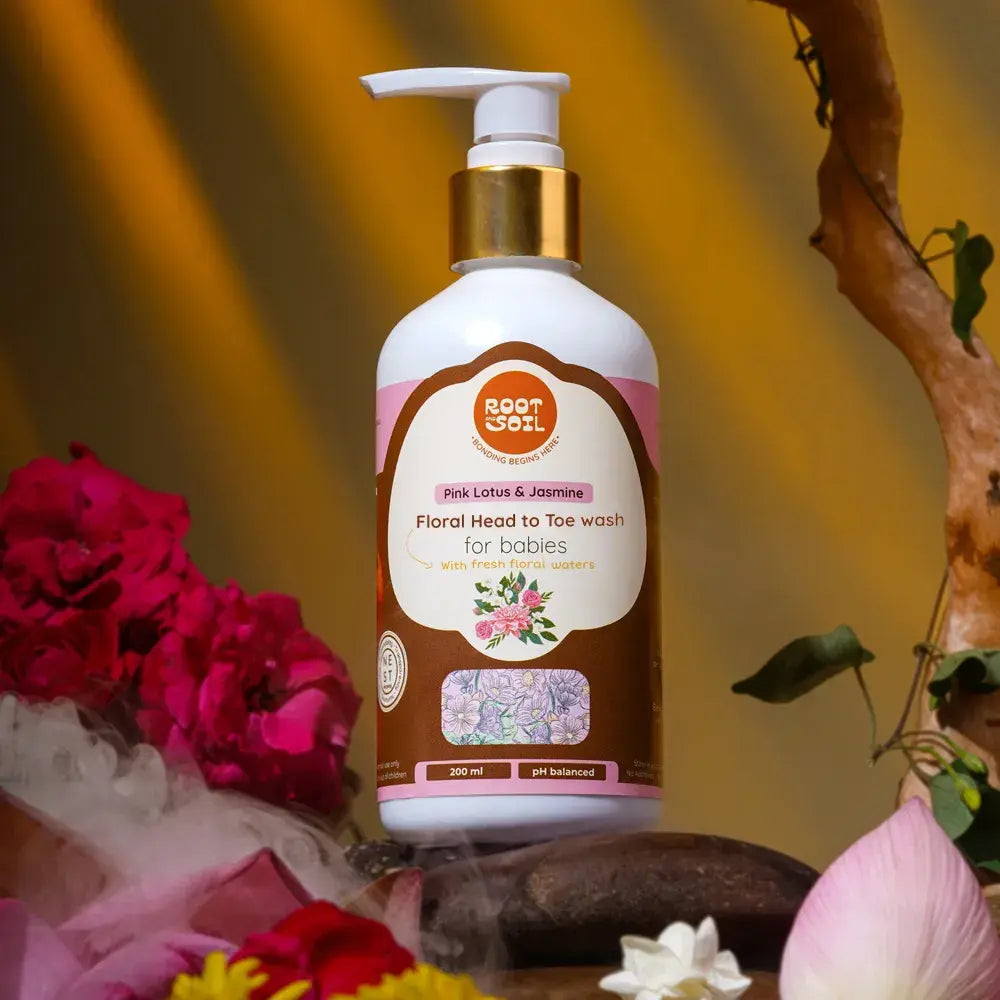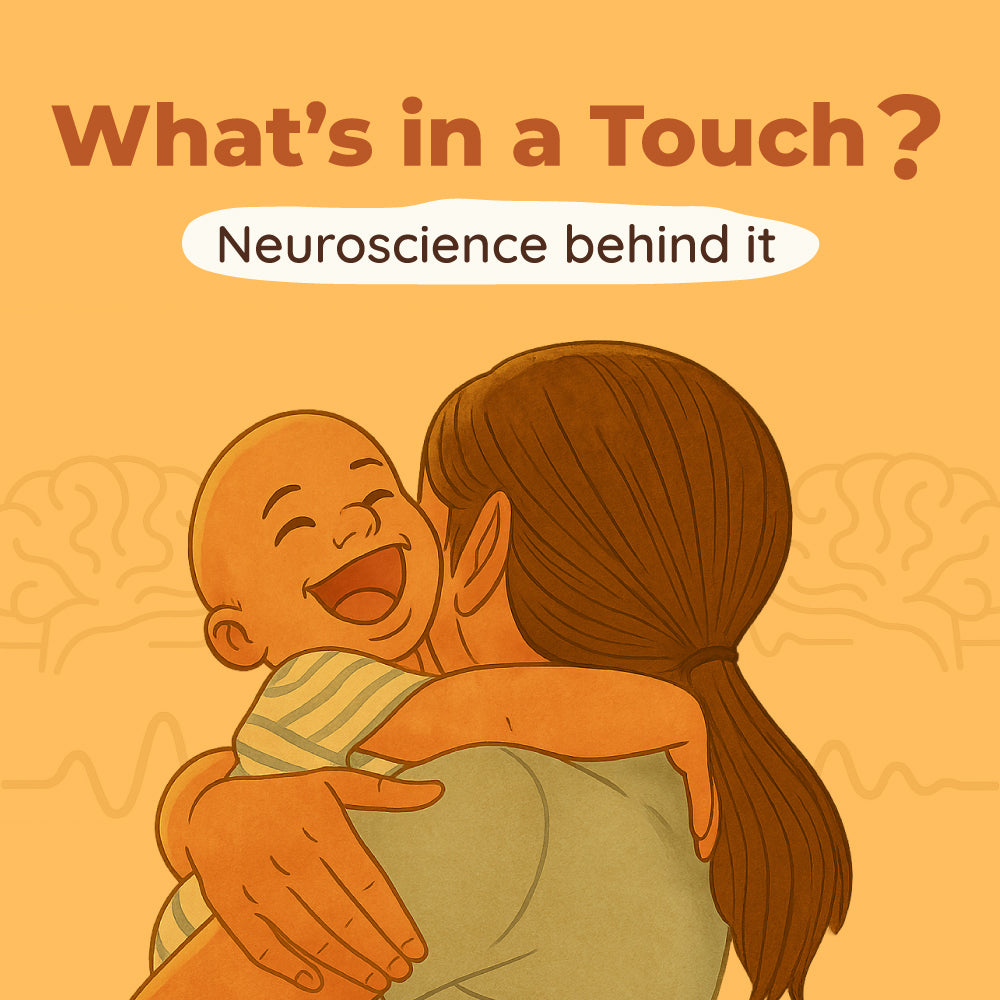
What’s in a Touch? The Neuroscience of Warm Oil and Baby Bonding
Is this just massage... or is it something far deeper, written into the very biology of love?
The Science of Touch
For a baby, touch is the very first language. Long before speech, before comprehension, before memory... touch tells them: you are safe, you are held, you belong.

Neuroscience shows us why. Gentle, rhythmic pressure on a baby’s skin stimulates the vagus nerve, a vital communicator between body and brain. This activation helps regulate heartbeat, digestion, and calm. Massage also releases oxytocin, the “bonding hormone,” in both baby and parent... deepening connection while reducing stress.
Clinical studies reveal what tradition has always known: nurturing touch lowers cortisol (the stress hormone), supports more restful sleep, improves weight gain in preterm babies, and even strengthens immunity. In essence, touch doesn’t just comfort... it builds biology.
Beyond Biology: The Feeling of Safety
But beyond hormones and nerves, touch whispers something more profound: The world is safe, and you are loved within it.
The rhythm of a caregiver’s hands echoes the security of the womb... the swaying, the heartbeat, the familiar warmth. Over time, babies learn self-regulation through these repeated acts of soothing. Each massage is not just an act of care, but a blueprint for resilience.
Why the Oil Matters
Yet what flows through those hands matters as much as the touch itself.
An infant’s skin barrier is delicate, thinner than an adult’s, and far more permeable. Oils applied on the surface do not merely coat... they absorb, nourishing or harming from within. Warm oil mirrors the womb’s warmth, and when chosen with care, it delivers nature’s nutrients directly into the skin.
This is why at Root and Soil, we choose purity without compromise. No unnecessary perfumes, no petroleum derivatives. Only cold-pressed, chemical-free, nutrient-rich oils... feeding the skin as wholesome food feeds the body.
A Daily Rite of Love

Baby massage is not a checklist task. It is a ritual... a meditation in motion. A moment where time slows, and the only language spoken is love through touch.
One stroke at a time, you are telling your baby: I see you. I’m here. You are loved.
Its Questions Time!
1. When can I start massaging my newborn?
Most experts recommend starting after the umbilical cord stump falls off (around 1–2 weeks). In preterm babies, gentle touch and skin-to-skin can begin even from day 1 ?, but with extra care and under medical guidance.
2. How often should I massage my baby?
Once a day is ideal, especially before bath or bedtime. The consistency builds routine and helps babies associate massage with relaxation, better sleep, and bonding time.
3. What oils are safest for newborn massage?
Cold-pressed, edible-grade oils like coconut, sesame, or almond are safest. Avoid mineral oils, petroleum-based oils, or scented products as they may irritate delicate skin or cause allergies.
4. Should the oil always be warmed?
Yes, lukewarm oil feels closer to the womb’s warmth and enhances relaxation. Just ensure it’s not too hot... test on your inner wrist before applying.
5. How are Root and Soil oils different from regular store-bought oils?
Most store-bought oils are refined, stripped of nutrients, or blended with mineral oil. Ours are cold-pressed, unrefined, and bottled in small batches to keep antioxidants, fatty acids, and vitamins intact, so they don’t just moisturize, they truly nourish your baby’s skin.
6. How are your oils made?
We use traditional cold-press methods to retain nutrients, antioxidants, and fatty acids. This ensures the oils nourish the skin barrier and absorb gently, unlike refined or mineral oils which often strip away benefits.
7. Can I use Root and Soil products if my baby has sensitive skin?
Yes. Our formulations are gentle and free from irritants, making them suitable for sensitive and eczema-prone skin. We always recommend a small patch test first, but many parents find our products sooth
